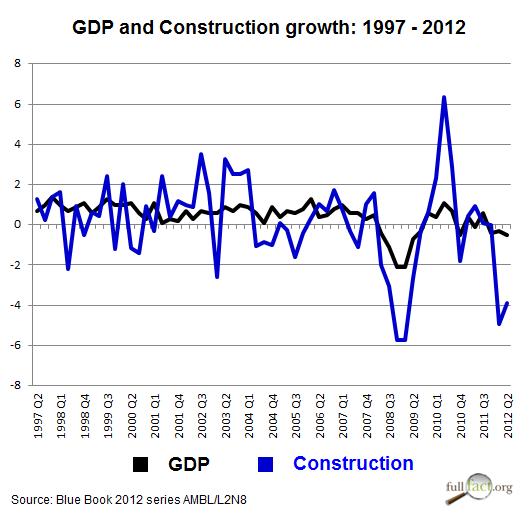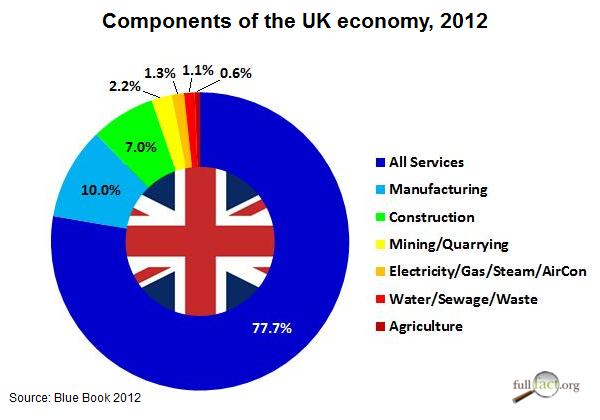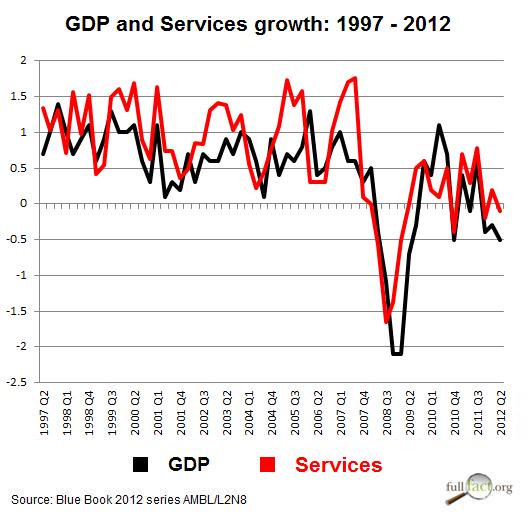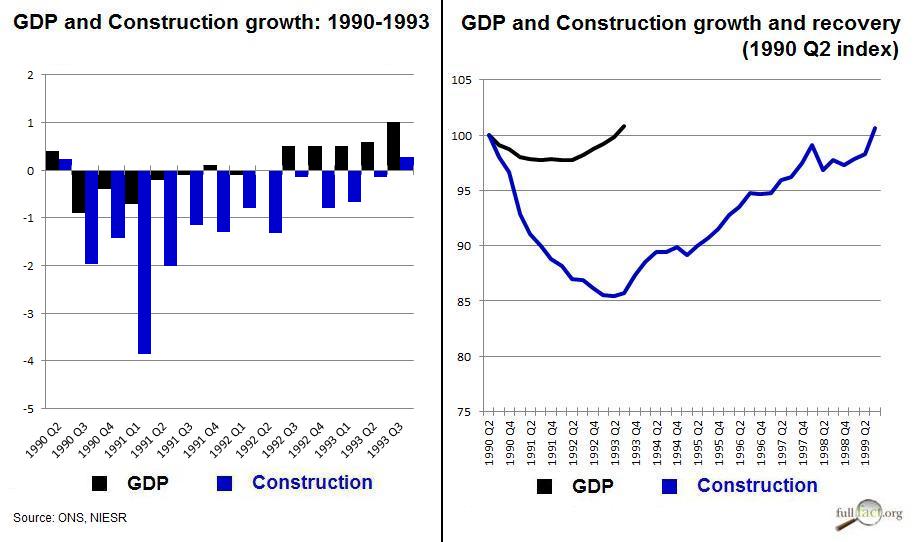How essential is construction to economic recovery?
"There has never been an economic recovery without a recovery in the construction sector."
Alex Salmond, Scottish Parliament, 4 September 2012
Yesterday saw the Scottish Parliament return from the summer break, and First Minister Alex Salmond wasted no time in presenting the Scottish Government's "ambitious" programme for government.
Amdist still tough economic times for the UK as a whole, Mr Salmond stressed that Scotland was doing significantly better than the UK average in terms of growth and employment. Among the First Minister's remarks he made the case for infrastructure spending, claiming there has never been an economic recovery without a recovery in the construction sector.
Analysis
Analysing the claim in pure statistical terms is actually quite difficult to do. The Office for National Statistics (ONS) publishes data on Gross Domestic Product and specific components of GDP growth such as construction. However, data on the construction sector's contribution is only available back to 1997.
The Blue Book 2012 publishes the figures on UK national accounts, including the growth rates of particular sectors of the economy. To this end, we can chart both GDP and construction growth back to 1997:

The only real 'recovery' we've got to go on is the recent downturn of 2008. GDP began to shrink in the second quarter of 2008 and didn't return to growth until the fourth quarter of 2009. The construction sector grew and shrank during the same quarters, although more severely in both directions.
So we can certainly say that construction played its part in both the downturn and the recovery, but only in the sense that the two are correlated; we can't say from this that it is the recovery in construction that was the driver of recovery.
Every sector, including manufacturing, services and agriculture, shrank and grew alongside GDP, although construction did recover the most in terms of growth towards the end of the 2008 recession.
Another factor to bear in mind is how much construction plays a role in the economy overall. Construction concerns housebuilding, both public and private, as well as commerial and industrial building. Overall, ONS figures confirm that construction represents seven per cent of the total UK economy:

So while construction - and indeed manufacturing - remain significant contributors to the UK economy, services (primarily financial, real estate, professional and transportational) still dominate the economic landscape. Financial and insurance services alone comprise a greater share of GDP than construction as a whole.
The huge contribution of services to the economy tends to make it a better gauge of overall GDP. In the first quarter of 2003, for instance, every sector of the economy except for services and agriculture fell (construction particularly sharply). However, GDP overall remained unchanged.
That services prove an overall more influential factor in GDP growth is visually apparent as well. Since 1997, services growth has broadly, although not always, closely correlated with overall GDP growth:

Conclusion
What we don't know, of course, is how well individual sectors of the economy have contributed to recoveries prior to 1997. For that, Full Fact has asked the ONS if any relevant data is available to allow an historical analysis. We've also got in touch with the SNP to see if they can provide us with any further information in support of the claim.
Until then, the stats will have to speak for themselves. Construction is undoubedly an important factor in GDP, but it doesn't necessarily lead to growth or decline overall. Recent evidence seems to suggest that the services sector is the most influential factor in determining GDP growth.
Of course, the sectors aren't completely separate entities either. Stimulating the construction sector can have knock-on effects throughout the economy. The Government itself claims there are indirect benefits to the economy of large-scale housebuilding.
Update (6 September 2012)
We're still waiting for clarification from the Scottish Government, however in the meantime the National Institute for Economic and Social Research (NIESR) have provided us with spliced ONS data on construction growth going back to 1973.
This made for interesting reading.
The last recession (prior to 2008) happened back in 1990/1, so this makes for an obvious example to test Alex Salmond's claim. GDP began to shrink in the third quarter of 1990, with construction contracting more severely at the same time.
The left-hand graph below shows that, while both GDP and constrcution returned to positive growth, the latter did so more than a year after GDP had recovered. Similarly, in terms of recovering to the pre-recession peak level of output, GDP had fully recovered by the end of 1993 while construction only returned to its pre-recession peak in 1999.
This would suggest that rather than being a stimulus for growth, construction may have actually been a drag on the recovery:

This evidence doesn't seem to bode well for the First Minister's claim. Taken either in terms of returning to positive growth or recovering to a pre-recession peak, construction didn't fully recover in the early 1990s until well after the economy was back on its feet, at least as far as the statistics tell us.